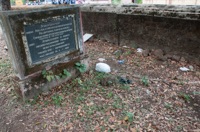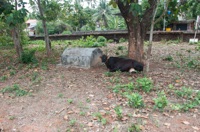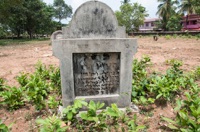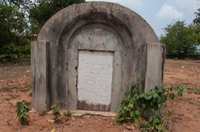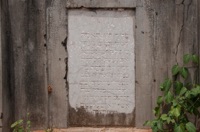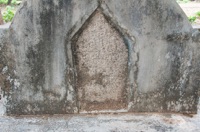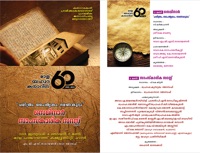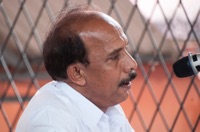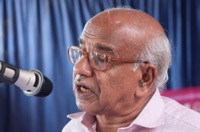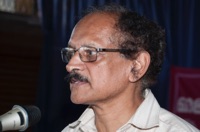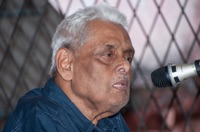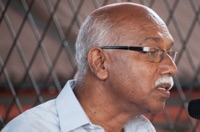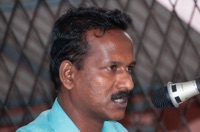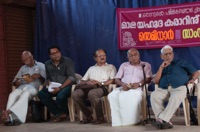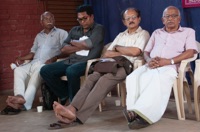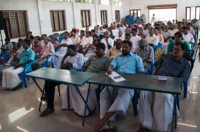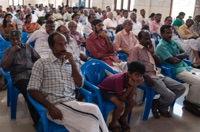
The Legacy of the Jews of Kerala
The Mala Jewish Cemetery | The Mala Jewish Synagogue
A thousand years lasting tale of religious tolerance and social harmony
The legacy of the Mala Jews is a legacy of communal harmony and religious freedom, a unique and invaluable asset for the city, the state, the country, the whole of human mankind. To preserve such a legacy by all means and to promote this legacy in times that witness ethnic conflicts and acts of violence in the name of religion, should be a welcome opportunity to promote most valuable identity building cultural assets as inspiration for the present and the future.
NEWS | INTACH On-Site-Inspection 2012 Report | State of Built Heritage Report 2015
- MALA
The Jewish Legacy - Mala Synagogue
INTRODUCTION - Mala Synagogue
- Photos - - Jewish Cemetery Mala
- Photos - - Jewish Cemetery Mala
INTRODUCTION - The Jewish Legacy
Seminar 2015
Preservation of the Jewish Legacy of Mala, Kerala, South India
Mala is a former significant Jewish settlement, situated in the southern part of Thrissur district, Kerala State, South India. The place name "Mala" might have originated from the Hebrew word "Mal-Aha" which means "Centre of Refugees". There are references in various historical and literary works about the Jewish presence in Mala as early as 1000 AD.
The Jews, traders by tradition, came and settled in the heart of Mala town from Kodungallur (historical name ‘Muziris’), the ancient port city, situated only ten kilometres away. The Jewish settlement in Kodungallur is believed to have started in the first century AD as part of the Jewish Diaspora building up as a consequence of the Roman invasion of Jerusalem, the Jewish capital.
It is said that in the beginning of 1950s there were about 40 Jewish families in Mala, maintaining close contact with the Jewish communities in the nearby places such as Kodungallur, North Parur, Chendamangalam and Ernakulam and harmonious relationship with the local people; the elders of the present day Mala still cherish their fond memories of their Jewish friends.
The Jewish community of Mala migrated to Israel between 1948 and 1955 in a process known as ‘Aliya’, the returning to their ‘promised land’ after the formation of the state of Israel in 1948. Before the last Jews left, their cemetery and synagogue, significant remains of their settlement, were given into custody to the Mala Panchayat by an agreement explicitly aimed to preserve the heritage site and monuments and protecting the Jewish sentiments and beliefs connected with it. The agreement was signed by the then Panchayat President and the trustees of the Jewish community and registered in the Sub-registrar Office, Mala, on 4th January 1955.
The Synagogue is located in the centre of the Mala town and the cemetery barely 500 meters away from the Synagogue.
The Mala Jewish Synagogue - under threat
Location: Mala, Thrissur District, Kerala state |
Survey Nr. 575 of Vadama village, Mala Panchayath, 23 cents (Ares)
The exact date of construction of the synagogue is not known.
One of the Jewish folk-songs mentions that the land and wood for the construction of Mala Synagogue were given by the ruler of Kodungallur at the time of Joseph Rabban, a prominent Jewish merchant chief to whom the famous ‘Copper Plate grants’ were conferred in 11th century AD.
The synagogue has been rebuilt several times. The present one was rebuilt in 1912 as evidenced from an inscription inside the synagogue building.
The synagogue, located at the intersection of two bustling small-commercial streets with a compound wall on three sides, and set now behind a row of shops, up a narrow unkempt alley. Three traditional upper windows looking out from the main sanctuary. An outside balcony on the second level looks out on the intersecting streets below. Exterior steps lead to what was the women's gallery, two stories up, looking down on the courtyard well. The typical Kerala synagogue has an azara or anteroom and a double height prayer hall. The synagogue’s tebah, heckal and furnishings and fittings are removed or lost -- though the replicas can be easily installed.
The synagogue was given into the custody of the Mala Panchayath on the basis of an agreement between the trustees of the Jewish Synagogue and the Grama Panchayath, registered on 04.01.1955 in the Sub Registrar Office Mala under the terms that the synagogue cannot be alienated in any way other than perpetuating the memory of the Mala Synagogue, that this should be announced and notified by a permanent and indelible inscription in a conspicuous part of the building and that the Mala Panchayath shall meet the necessary expenses for its preservation in good repair.
The present status of the Jewish synagogue is one of ongoing neglect of this important historical monument in the course of time. There are leakages in its roofing, cracks on its walls and damages to the ceilings. That there is no wall on the western side of the premises of the synagogue has invited encroachment and misuse.
Not carrying out the annual maintenance of the synagogue is in clear violation of the aforesaid agreement.
The synagogue building needs urgent renovation for which the expertise of conservation architects and competent authorities should be thought.
The Jewish Synagogue of Mala
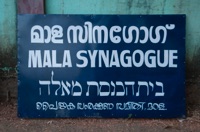
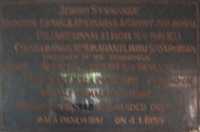
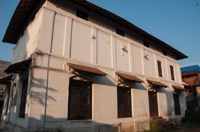
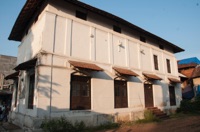
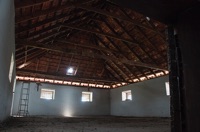
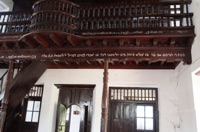
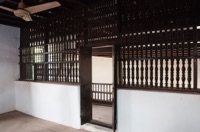
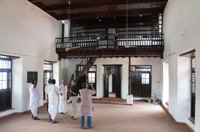
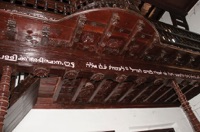
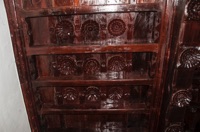
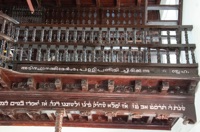
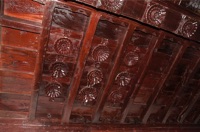
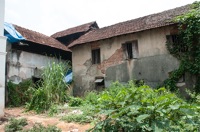
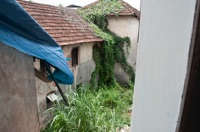
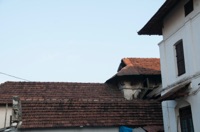
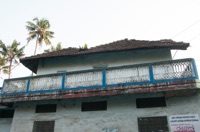
The Jewish Cemetery of Mala
- at present a shocking tale of negligence, disrespect of religious sentiments
and moral and ethical bankruptcy
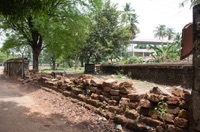
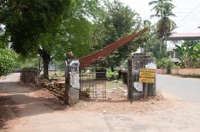
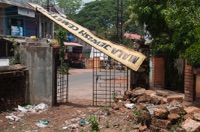
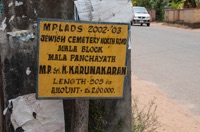
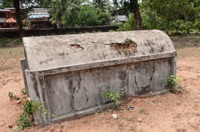
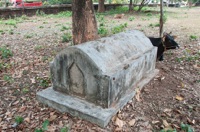
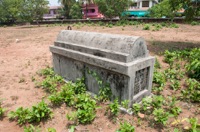
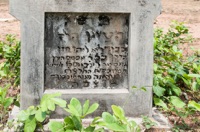
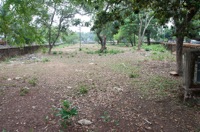
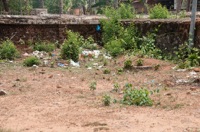
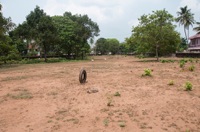
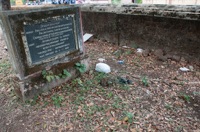
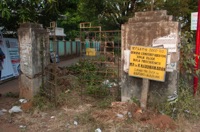
Entrance to the cemetery
December 18, 2013
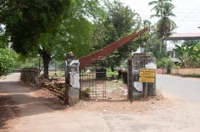
Entrance to the cemetery
April 12, 2012
The Mala Jewish Cemetery - under threat of extinction
Location: Mala, Thrissur District, Kerala state |
Survey Nr. 709 of Vadama village, Mala Panchayath, 4 acres (1,62 hectares)
More than two thousand Jewish forefathers have been buried in the Mala cemetery on a conventional estimate.
The Jewish cemetery in Mala is also a living symbol of the religious amity of the land where a minority foreign community who came here as refugees was given protection and patronage by other communities.
The Mala Jewish cemetery, is situated about 500 meters east of the Mala synagogue by the side of a state PWD road.
It faces the threat of extinction.
The cemetery with a compound wall on all sides and a gate at the front side, covering an area of 4 acres ( 1.62 hectares ), is one of the oldest and the largest Jewish cemetery in India, covering an area of 4 acres (1.62 hectares).
The cemetery is in two sections of land; in the first, there are three tomb stones - two in the first section of an open field and one partly hidden under a cashew tree. The second section - at least twice as large - lies beyond the first on higher ground that is separated from the first by a stone wall and has no graves or tombstones.
At the entrance gate a black framed sign board marks the site in English and Malayalam as a Jewish cemetery and lists the three trustees of the cemetery from Chennamangalam and Ernakulum who deeded and handed over the cemetery to the Mala Panchayat on April 1, 1955.
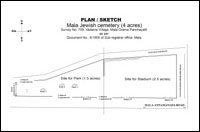
Panchayath Usage Alteration Plan
100 | 300
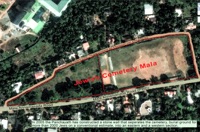
Sketch of the cemetery
100 | 300
The agreement between the trustees of the Jewish Synagogue and the Grama Panchayath, registered on 04.01.1955 in the Sub Registrar Office Mala, is very specific about the terms and conditions of handing over the Jewish cemetery with an area of 4 acres (1,62 hectares) in Survey Nr. 709 of Vadama village in Mala Panchayath.
While the agreement is aimed to preserve the Jewish cemetery as a heritage site, it explicitly prohibits digging, unearthing and excavation on the cemetery land to ensure the respecting of the Jewish belief. According to this belief the souls of deceased persons visit their buried bodies frequently; the deceased bodies should therefore remain intact in their graves. Otherwise the souls cannot visit their bodies - something that every Jew wants to avoid as they further believe in the resurrection of the virtuous at the time of the arrival of the messiah on the final day of ‘Judgment ‘.
In blatant violation of the conditions laid down in the 1955 agreement, the government of Kerala decided to construct a stadium and a park on the premises of the Jewish cemetery. Disregarding pending petitions against the violation of an agreement with the Jewish community, the government has built already a stadium on part of the cemetery that might not have been used for burials yet and has now started excavation works on the remaining part of the cemetery.
Because of this the Mala Jewish Cemetery faces the threat of extinction ,
A popular movement has started to champion the cause of preservation of Jewish cemetery under ‘Paithruka Samrakshana Samithi [heritage protection council] Mala’ with the support and co-operation of several organization including the Indian National Trust for Art and Cultural Heritage (INTACH).
